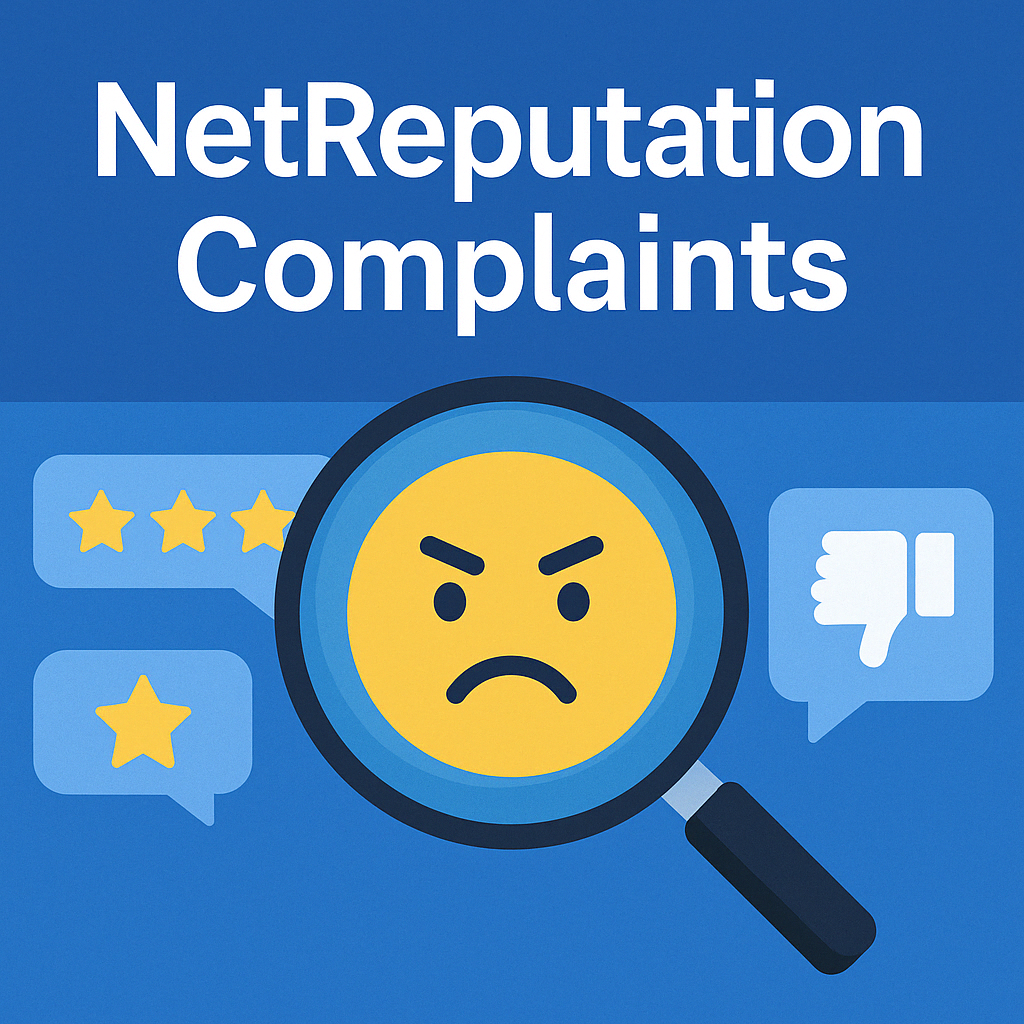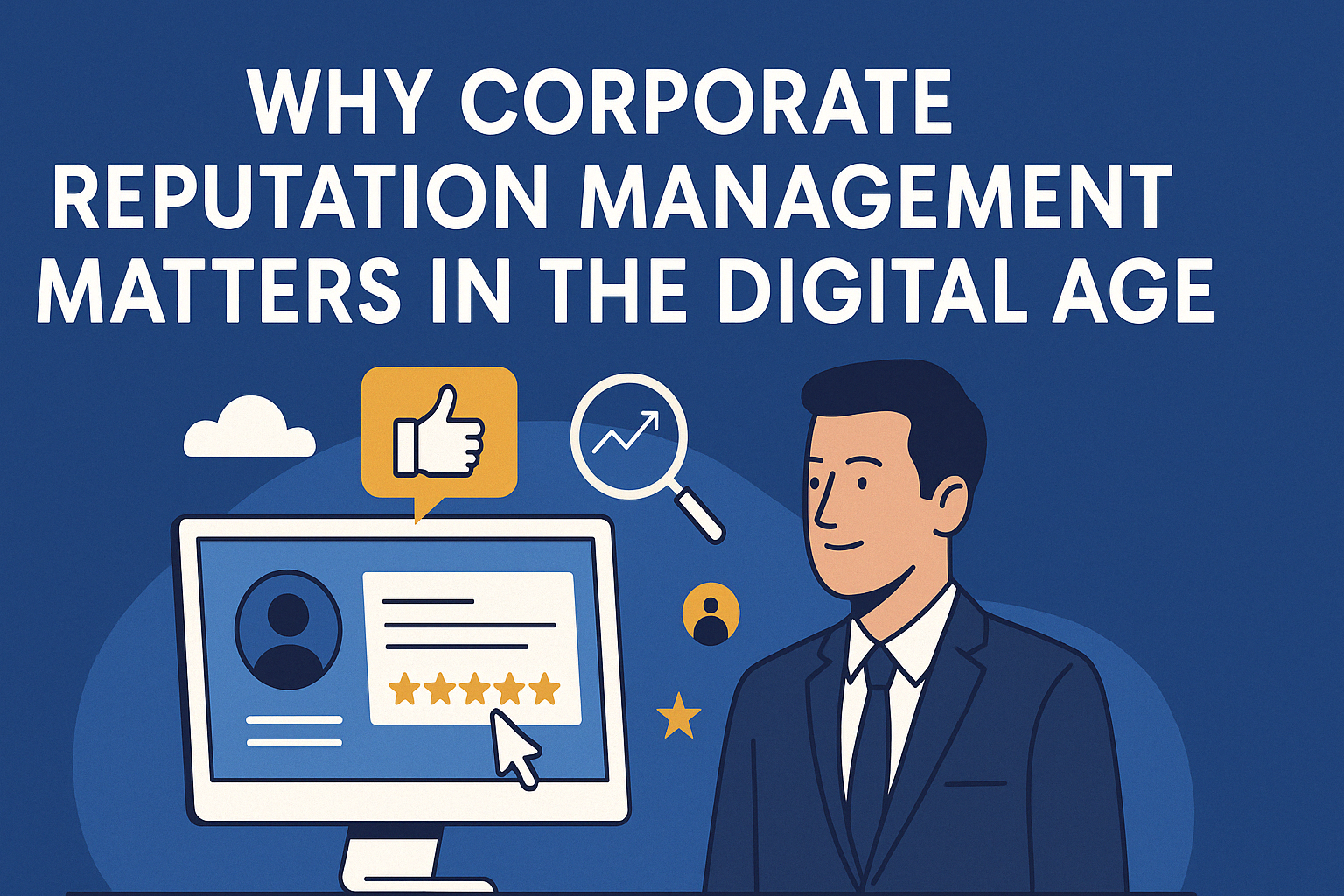Why Online Reviews and Complaints Matter
In today’s hyper-transparent economy, a single complaint or poor review can make or break a reputation—especially when the company in question claims to manage and repair reputations.
With rising interest in online reputation services, queries like “NetReputation complaints”, “NetReputation reviews”, and “Is NetReputation legit?” are becoming increasingly common. Customers and businesses alike want to ensure that the services they trust with their name are ethical, reliable, and results-driven.
As Forbes points out in this article, trust is earned—not bought. That makes examining client complaints, review authenticity, service delivery, and refund processes a key part of evaluating any ORM provider.
Understanding the feedback about ORM services like NetReputation can guide your decision-making, help you avoid potential pitfalls, and ensure you partner with a team that prioritizes your long-term online integrity—not just short-term results.
Key Categories of NetReputation Complaints
1. Service Expectations vs. Results
Many customers have reported dissatisfaction with the outcome of their campaigns. Common concerns include:
- Limited or no visibility improvement after months of service
- Unclear scope of deliverables
- Overpromising during sales calls, followed by limited performance
“I paid thousands and still see the same negative content ranking at the top of Google.” – User on complaint board forum
These types of complaints often stem from clients being unaware of how difficult and time-consuming reputation suppression or removal efforts can be. However, a transparent provider should communicate that timeline early and consistently.
2. Communication Gaps
Numerous online reviews point to unresponsive account managers or delays in updates.
Signs of poor service communication:
- Lack of transparency about campaign progress
- Reps going dark after payment
- Hard-to-reach support team or contact info
These issues tend to amplify dissatisfaction, especially when paired with unmet expectations or slow results. Effective communication is not optional—it’s essential in managing client trust in long-term ORM campaigns.
3. Refund Requests and Billing Disputes
Some users have shared frustrations about:
- Difficulty obtaining refunds
- Unexpected billing extensions
- Auto-renewals without reminder notices
If a service doesn’t deliver as promised, customers should have clear refund and cancellation policies available. A failure to honor those often becomes the most damaging aspect of the entire customer experience.
4. Lack of Education or Customer Onboarding
Some clients indicate that they didn’t understand the methods being used to improve their reputation. Terms like “suppression,” “SEO stacking,” or “content seeding” can sound like jargon without a clear explanation.
This points to a broader issue: customers deserve to understand what they’re paying for. A strong onboarding process, regular progress reports, and educational content should be built into every engagement.
Where Customers Voice Their Complaints
Public sentiment around NetReputation appears on various consumer platforms. Here’s where real feedback is collected:
- Better Business Bureau (BBB): Contains both complaints and company responses
- Trustpilot: Mixed reviews with some users citing great support, others sharing underwhelming results
- SiteJabber: Features a mix of positive and negative feedback
- Reddit threads: Unfiltered community discussions about experiences and alternatives
- Glassdoor: Internal employee reviews sometimes reveal behind-the-scenes dynamics that impact service quality
It’s important to note that not all negative reviews are malicious. In many cases, customers are simply venting frustration after unclear expectations were set or a timeline wasn’t met. That said, multiple complaints across platforms can signal a pattern worth paying attention to.
Red Flags to Watch in Reputation Management Providers
1. Vague Service Agreements
Be cautious if deliverables are not clearly outlined. You should receive a roadmap that includes:
- Timeline expectations
- Types of content being created
- Target sites for suppression
- Performance metrics
2. Overreliance on Paid Press Releases
Press releases can be effective—but not when they are used as a sole tactic. Search engines recognize thin PR content and may devalue it quickly.
3. No Proven Track Record
Ask for:
- Case studies (with anonymized client info)
- Google Search screenshots (before and after)
- Testimonials on verified platforms
4. Unsolicited or Pushy Sales Tactics
Some ORM companies rely on high-pressure sales environments. If you receive aggressive outreach with limited transparency, consider it a warning sign.
Alternatives When You’re Unsatisfied with ORM Services
If you’ve already worked with a service like NetReputation and feel underserved, don’t panic. There are steps you can take to restore trust in your online presence.
What to Do If You’re Unhappy:
- Request a service audit to evaluate what’s been done.
- File a written refund request detailing broken promises.
- Consult a reputation repair expert not affiliated with the original provider.
- Document everything including contracts, emails, and reports.
- Suppress unwanted content using white-hat SEO strategies.
It’s also important to reclaim your online narrative through your own channels. Publishing high-authority, optimized content can displace unwanted listings while reinforcing your credibility.
The Defamation Defenders Difference
Defamation Defenders provides personalized, results-focused solutions with an emphasis on transparency and long-term reputation health. Here’s how our approach stands out:
- Customized strategies based on your search profile
- Clear reporting and direct communication with account managers
- Legal insight for removal when applicable
- Ethical suppression methods using high-authority domains
- Review monitoring and sentiment analysis dashboards
What We Help With:
- Removal of defamatory and harmful online content
- Strategic publishing to promote positive search results
- Personalized founder and executive ORM services
- Online review management for brands and individuals
We specialize in helping individuals and businesses recover from poor service experiences, reputation attacks, or disappointing ORM contracts.
Contact Defamation Defenders for a free consultation and take back control of your online image.
Frequently Asked Questions (FAQ)
Some may be, but review authenticity varies across platforms. Always cross-check feedback on multiple independent sites like Reddit, BBB, or Trustpilot.
It depends. Like all reputation services, they cannot remove every link unless there’s a legal or platform-based violation. Often, suppression—not removal—is the strategy.
Reputation repair campaigns can take 2–12 months depending on content age, domain authority, and strategy quality.
Gather documentation and request a formal service audit. If needed, speak to a lawyer or hire another ORM expert to evaluate next steps.
Reported issues include unresponsive service, unsatisfactory results, and difficulty with refunds or cancellations.
Be cautious. Mixed reviews are not inherently bad, but transparency, responsiveness, and realistic promises should be non-negotiable.
Document the evidence, flag the reviews, and report them to the platform. If not resolved, a reputation management service may be able to escalate removal efforts.
Check independent review sites, ask for third-party case studies, verify online business registrations, and evaluate their visibility in search results.
Works Cited
Forbes. “The Importance of Trust in Brand Building.” https://www.forbes.com/sites/theyec/2021/07/20/the-importance-of-trust-in-brand-building
Better Business Bureau. “NetReputation Reviews and Complaints.” https://www.bbb.org
Trustpilot. “NetReputation Customer Feedback.” https://www.trustpilot.com
SiteJabber. “Consumer Reviews for NetReputation.” https://www.sitejabber.com
Reddit. “Has Anyone Used NetReputation?” https://www.reddit.com





